Emergency Root Canal Near Me
If you notice any problem in your teeth that will require root canal therapy, then check on us at URBN Dental. It is our aim to help save your teeth and make certain that you can keep them and use them well throughout your life course. How though can you tell if you really need one? Let’s consider some questions that may likely be crossing your mind.
Dental Root Canal Therapy
Toothaches occur for a number of reasons. If you have a toothache, consult a reputable dentist so that they can run a series of tests and examinations to determine the source of your toothache.
In some cases, the recommended treatment for a toothache may be as simple as a filling. In other cases however, you may need an emergency root canal near me.
This doesn’t mean that you have to search for an emergency root canal near me at once. However, you should consult your dentist immediately because your toothache requires immediate attention.
At URBN Dental, we carefully examine your teeth and oral condition with advanced x-rays to diagnose the root cause of your toothache. Depending on your condition, our dentist may or may not recommend an emergency root canal. We always strive to protect your teeth with minimally-invasive and painless procedures.
Your comfort is our top priority. To that end, we ensure that all of our treatments are painless and we give you a thorough overview of the procedure prior to the treatment to keep you in the loop.
Signs You Need a Root Canal Therapy
Only a board-certified dentist can decide if you require an emergency root canal treatment near me or another procedure. However, a few symptoms and warning signs may indicate an imminent emergency root canal.
Do you have constant toothaches, especially while chewing or eating? Is the toothache worse at the end of the day? Do you have swollen or sensitive gums? Are your teeth extremely sensitive and do they sting upon contact with hot or cold dishes? Do you have trouble sleeping because of an incessant toothache?
If you can identify with any of the aforementioned signs, an emergency root canal near me may be necessary. Persistent toothaches (especially at night) and swollen/sensitive gums are the initial signs of an imminent root canal.
However, if left untreated, the signs can get progressively worse. Eventually, your teeth may fracture easily, your gums may bleed, and your teeth enamel may wear off.
The end goal for any root canal specialist is to ensure you keep your teeth, which is primarily where an emergency root canal comes in. The procedure aims to prolong your teeth’ life and prevent complete decay.
The Science Behind Root Canal Therapy
The process and principles behind root canal therapy are quite simple. To put it simply, the root canal is necessary when your teeth are infected.
Your teeth may get infected for a number of reasons. It can be something simple — like food particles stuck between your teeth for long stretches of time — or it can be something more complex like leaky fillings from a previous botched treatment. That’s why the quality of your dental care is so important. If you visit an inferior dental clinic, you may just pay for it down the line.
Root canal aims to remove all foreign particles and infections from inside the tooth and replace them with an unreactive, inert material. The procedure concludes after capping or sealing the affected tooth with a dental crown.
If not treated in a timely manner, the infection may eat up your tooth from the inside, rendering it useless. In such a scenario, the dentist will have no option but to perform a tooth extraction procedure. If you continue avoiding treatment, the infection may even spread to the surrounding teeth.
As such, it’s in your best interest to seek treatment and schedule an appointment with an emergency root canal specialist near me as soon as you identify the first signs and symptoms of tooth decay.

Do I Need a Root Canal Treatment?
At URBN Dental, our highly-qualified root canal dentist can study your teeth to determine if you need a root canal treatment. You only need to identify the aforementioned signs and schedule an appointment. Your root canal dentist will diagnose the problem and determine which treatment you require.
What to do About my Situation?
Can you identify any of the symptoms mentioned above? Are these symptoms persistent? If so, you must visit an emergency root canal near me immediately. It’s completely possible that the situation isn’t serious and that you don’t need a root canal.
Of course, it’s better to have an expert opinion rather than to gamble with your oral health. At URBN Dental, you can set up a same-day appointment with highly recommended dentist in Houston. In case there’s a dental emergency — for instance, if your gums suddenly start bleeding — you can also locate one of our URBN Dental clinics and walk in without an appointment for immediate emergency treatment.
URBN Dental is equipped with the latest state-of-the-art facilities that include advanced x-rays and other evaluation devices to accurately diagnose your problem. Following the evaluation, the dentist discusses your treatment options and explains everything in detail so you know exactly what the procedure includes. During the treatment, the dentist uses a numbing gel or anesthetic so you don’t feel any pain or discomfort.
As we’ve mentioned previously, the infection spreads to other teeth and potentially results in loss of teeth if you ignore your tooth decay. So don’t wait around for the symptoms to get worse — seek treatment as soon as possible.

When is Tooth Extraction Necessary?
At URBN Dental, extraction is always a last resort option. Our priority is to save your tooth with as little discomfort as possible. However, tooth extraction may be necessary if there’s a risk of the infection spreading to the neighboring teeth or if your infected tooth is beyond saving.
In these situations, our dentists perform a tooth extraction.
Following the extraction, you may also opt to get fitted for tooth implants. In that case, we can mold a natural-seeming tooth to replace the lost tooth.
Root Canal Houston
If you reside in Houston and need a solution to your dental problems, visit one of our URBN Dental clinics for emergency root canals near me consultation. Call us at 832-743-2989 or schedule an appointment at a time of your choosing.
Dental root canal therapy FAQs
What is highly recommended treatment for a broken tooth under a crown?
What happens if the tooth cavity is bleeding?
How are abscessed tooth treated?
Can you get an abscess in a tooth that had a root canal?
What are highly recommended foods to eat after root canal surgery?
Does root canal treatment solve hot/cold tooth sensitivity?
Whenever a tooth is damaged, regardless of whether from a dull hit, decayed by bacteria from the food on the tooth surface, or treated by a dentist for a filling or crown the nerve can inflame and cause sensitivity. If the sensitivity doesn’t fade then a root canal might be needed to treat it. When you get a root canal your tooth is opened up; the nerve is removed, the root canal is then cleaned and disinfected and then sealed. Since the nerve is removed, you are correct; you would not feel anything as the tooth is dead. But sometimes canals can be missed by dentists, more often in molars and due to unusual life structures, can cause patients pain and reinfection.
Do I really need root canal treatment?
If you continue to avoid the spread of dental decay in your mouth and abstain from getting a root canal, then it will inevitably lead to complete tooth extraction. A root canal is also important in preventing tooth loss. You need a root canal when the decay starts to get very painful.

